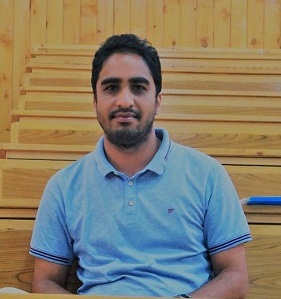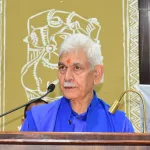In a region that echoes with narratives of resilience, healing, and rebuilding, one group continues to serve silently, professionally, and with a tireless commitment to education—contractual college lecturers in Jammu and Kashmir. Despite being the intellectual scaffolding of higher education, they remain underpaid, undervalued, and largely ignored.
These lecturers, entrusted with delivering the same curriculum, mentoring students with equal dedication, and holding the academic integrity of colleges together, are compensated with a stagnant monthly honorarium of Rs 28,000. This fixed sum—unrevised for years—is barely sufficient to support a single individual, let alone a family. It is a figure frozen in time, while the cost of living has surged, inflation has skyrocketed, and their duties have deepened.
But why does this injustice persist?
A System Built on Insecurity
Contractual employment in higher education was originally a stopgap solution to address staffing shortages. Over time, it morphed into an unofficial structural reality. Across districts, government colleges rely heavily on lecturers hired through yearly contracts. These professionals—many of whom hold postgraduate degrees, NET/SET qualifications, and PhDs—have become integral to academic departments.
They prepare lessons, deliver lectures, evaluate exams, guide dissertations, coordinate seminars, and represent institutions in academic forums. Their portfolios rival, and often surpass, those of permanent Assistant Professors.
Yet, while regular faculty earn upwards of Rs 70,000 to Rs 85,000 per month, contractual lecturers receive Rs 28,000—without allowances, job security, or benefits. This salary gap isn’t just a financial issue; it is an ethical failure. It conveys a deeply unjust message: your labor is essential, but your dignity is optional.
The Hidden Cost of Passion
Teaching is, at its heart, a labor of love. That love, however, should not require personal sacrifice. Many contractual lecturers are family men and women. They pay rent, school fees, medical bills, and daily expenses. They support aging parents and build futures for their children. And yet, month after month, they stretch a constrained paycheck to meet expanding needs.
There is also the mental toll. Living with professional precarity—never knowing if your contract will be renewed—is a source of stress. It creates a gnawing undercurrent of anxiety and forces educators to make heartbreaking compromises. Dreams of publishing research, investing in professional development, or even taking a restful vacation remain suspended.
The irony is profound: those entrusted with shaping young minds and guiding futures are denied the very security they help others build.
A Tale Told Across Campuses
From Baramulla to Anantnag, Pulwama to Kathua, the story echoes the same: colleges depend on contractual lecturers, yet ignore their calls for dignity. Lecturers arrive early, stay late, and attend to students even during personal crises. They carry the ethos of education on their shoulders, yet remain invisible in policy discussions.
One Physics lecturer from South Kashmir shared, “I love teaching, but I sometimes wonder if it’s loving me back. Rs 28,000 doesn’t respect the responsibilities I carry—not professionally, nor personally.” A Political Science educator added, “It’s not about greed—it’s about dignity. Equal work deserves equal pay.”
Their voices don’t seek sympathy—they seek justice.
A Wider Lens of Comparison
Let us pause and compare this situation nationally:
| State/Region | Contractual Pay | Regular Assistant Prof Pay | Gap |
| Jammu & Kashmir | Rs 28,000 | Rs 70,000 –Rs 85,000 | ~60% |
| Punjab | Rs 38,000–Rs 45,000 | Rs 75,000 –Rs 90,000 | ~45% |
| Karnataka | Rs 40,000 | Rs 80,000 | ~50% |
| Kerala | Rs 45,000 | Rs 80,000 –Rs 90,000 | ~44% |
Jammu and Kashmir stands at the bottom of the ladder—disproportionately behind despite its lecturers performing the same roles as their peers in other states.
This is not an academic footnote—it is a policy emergency.
The Education Paradox
Public education depends on the passion and dedication of its teachers. When lecturers are demoralized, students suffer. Quality mentorship fades. Research stagnates. Career guidance weakens. Students may not recognize the anxiety behind the smile of a lecturer—but it affects them nonetheless.
A disempowered educator cannot deliver empowered education. We are not just denying teachers their rightful compensation; we are also sabotaging the intellectual ecosystem our youth deserve.
A Call for Reform, Not Relief
This article is not a plea—it is a call to action. The government of Jammu and Kashmir must recognize its contractual lecturers not as temporary labor but as permanent contributors to social progress. A few key steps could change everything:
- Salary Hike: Raise honorarium to at least Rs 50,000–Rs 55,000, reflective of qualifications, workload, and inflation.
- Institutional Benefits: Extend basic provisions—health insurance, travel and research allowances, maternity/paternity leave.
- Psychosocial Support: Introduce counseling services, professional development programs, and mentorship systems.
- Transparent Appointments: Ensure merit-based recruitment and promotion, free from bureaucratic delays or favoritism.
These aren’t luxuries. They’re rights.
Beyond the Classroom: A Moral Reflection
At its core, this issue transcends contracts and paychecks. It’s about how a society honors labor. How governments uphold dignity. And how education systems define equity. Contractual lecturers are not asking for more—they’re asking for what’s fair. Their struggle is not about economics alone. It’s about ethics, empathy, and evolving policy. It’s about recognizing that education doesn’t bloom in fear—it thrives in respect.
Closing Thoughts: Justice as Curriculum
Let us teach by example. Let us make justice the curriculum. Let policy makers listen—not with indifference but with urgency. Let education departments lead—not with token gestures but with transformative reform.
Jammu and Kashmir’s lecturers have taught resilience, brilliance, and patience. It’s time they were taught something in return: that their government hears them. That their dignity matters. That equality is not aspirational—it’s foundational.
(Author is PhD Physics and is currently working in Qatar. Feedback: [email protected])








